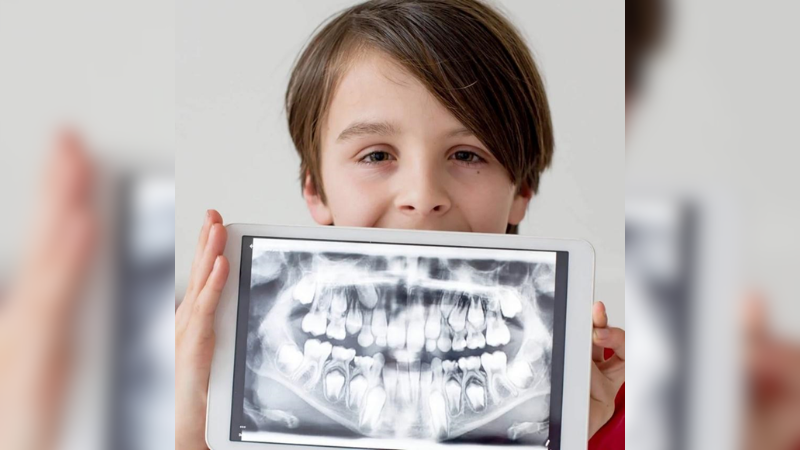X-rays have been used in dentistry for over a century. Along with a visual mouth examination, they provide your dentist with a more complete view of what’s happening under the surface.
Benefits of Dental X-rays
Early detection of problems: X-rays can reveal cavities between the teeth, leaking restorations, bone loss, periodontal disease, and tumors. This allows for early intervention and treatment, preventing them from becoming more serious and requiring more extensive procedures later.
Treatment planning: X-rays provide a clear picture of your teeth and jawbone structure, which is crucial for dentists to plan treatments like root canals, implant placement, or orthodontic work.
Monitoring dental health: X-rays help dentists check teeth development in children as well as track the progression of existing dental problems and assess the effectiveness of treatments.
Dental X-rays are generally considered safe. The amount of radiation exposure from a dental X-ray is very low compared to other sources of radiation, such as natural background radiation or medical X-rays of other parts of the body.
Radiation is measured in millisieverts (mSv). For example, regular checkup dental X-rays expose a patient to about 0.005 mSv. This is less than an average daily dose of radiation from background sources we encounter in everyday life. By comparison, you would be exposed to about 0.035 mSv of cosmic radiation if you were to fly within the United States from the east coast to the west coast.
Risks of Dental X-rays:
Radiation exposure: While the amount of radiation from a dental X-ray is very low, it’s not zero. However, the benefit of early detection often outweighs this minimal risk.
Pregnant women: Though generally safe, X-rays are typically avoided during pregnancy unless necessary due to potential risks to the fetus. Because dental X-rays focus on the head, the risk to the fetus is small but if you have to have an X-ray while pregnant, make sure that you wear the lead apron correctly to protect the baby from radiation.
Minimizing Risks:
Digital X-rays: Modern dental offices use digital X-rays, which significantly reduce radiation exposure compared to traditional film X-rays.
Targeted X-rays: Dentists will only take the specific X-rays needed for your situation, minimizing unnecessary radiation exposure.
Protective gear: Lead aprons can offer additional protection. Avoid X-rays during the first trimester of pregnancy.
X-rays are an important tool for dentists to diagnose dental problems, but the concern is that exposure to radiation may damage cells and cause cancer. For a healthy adult, the benefits of dental X-rays far outweigh the small risks. However, there is no one size fits all and it is very important for you and your dentist to make an informed decision.





